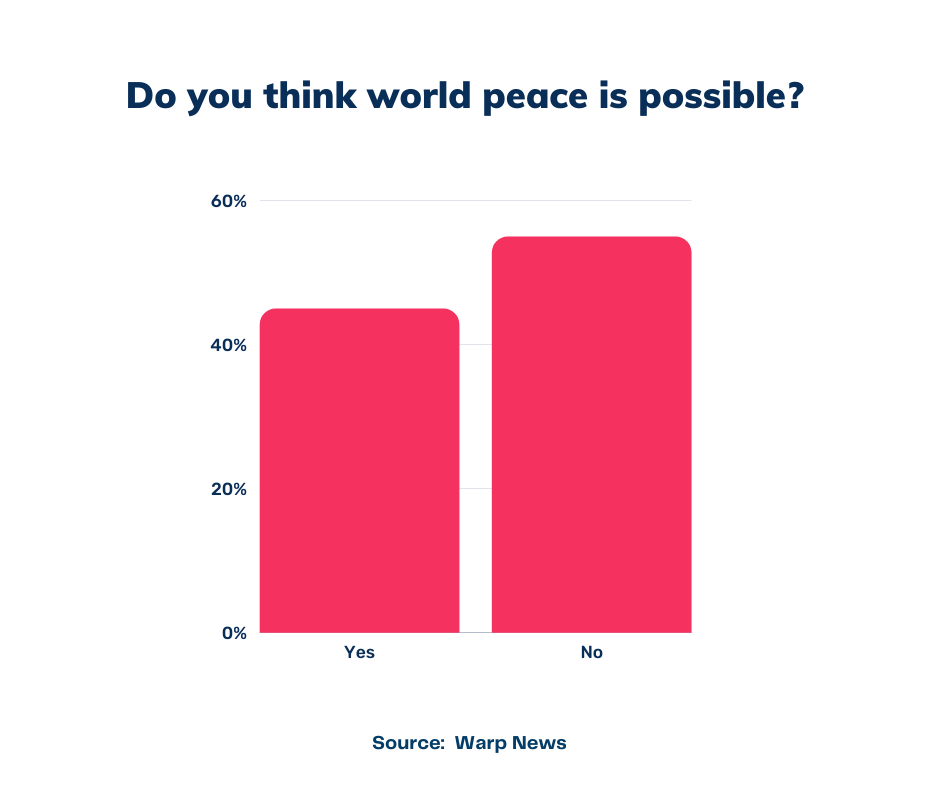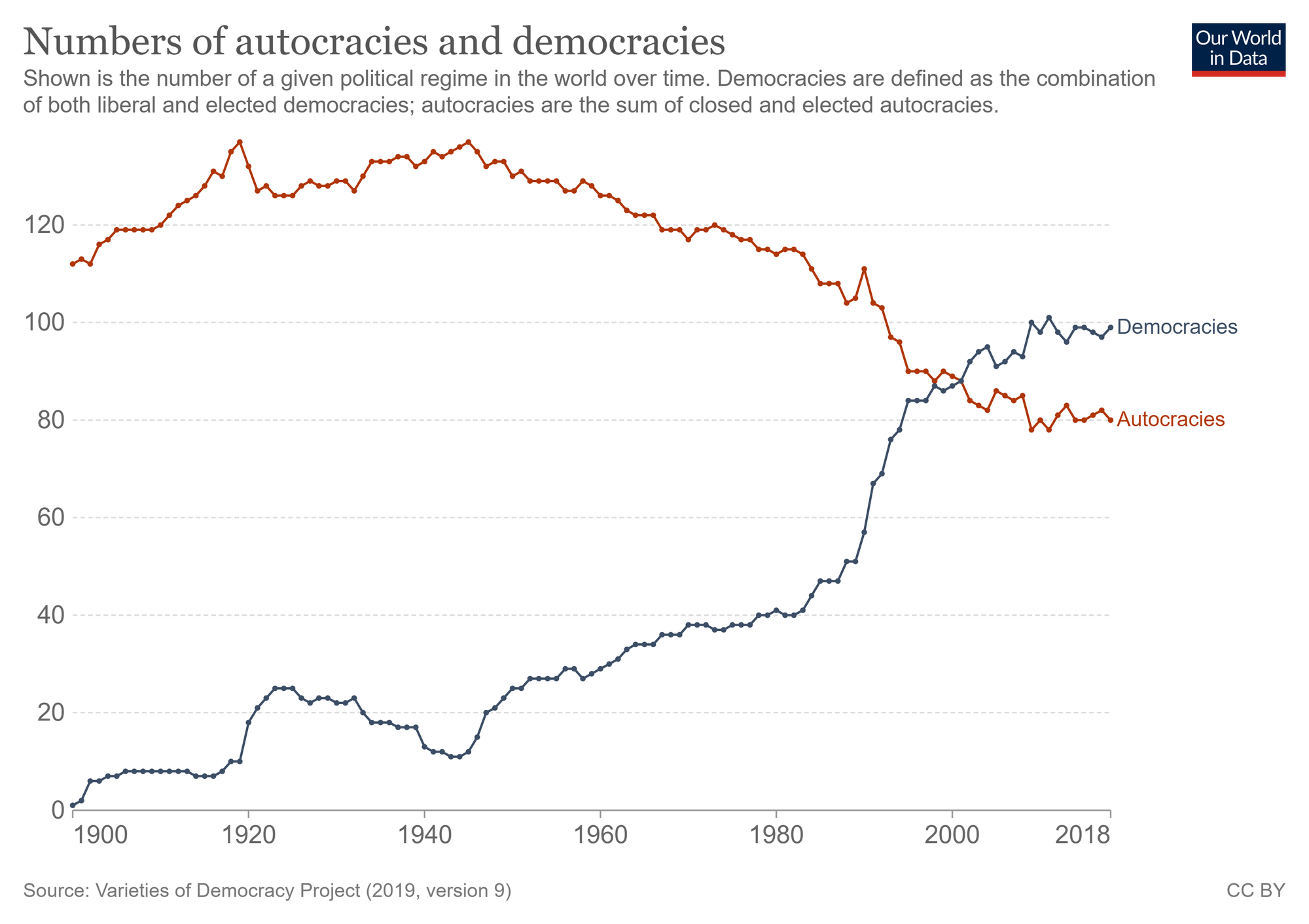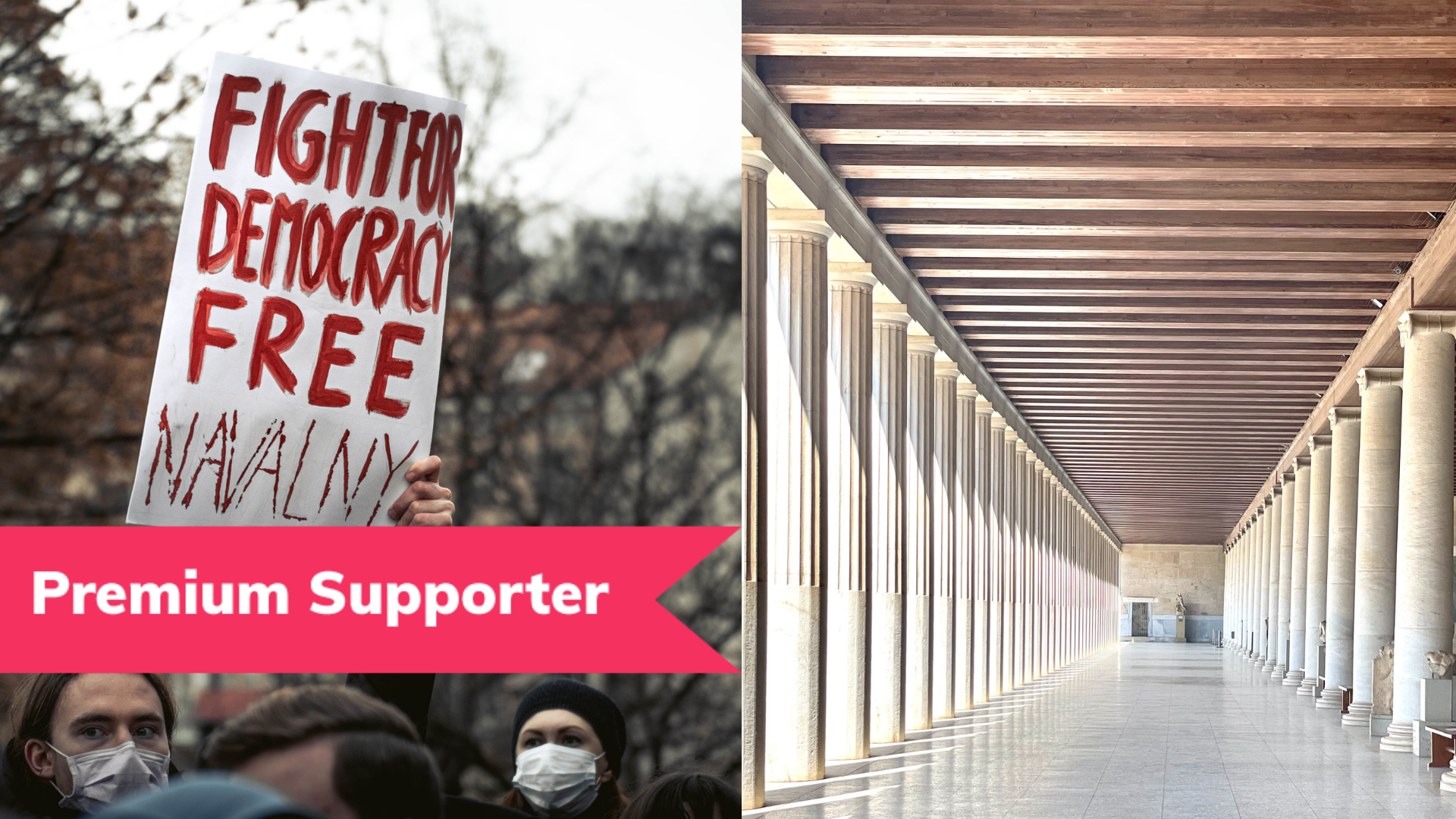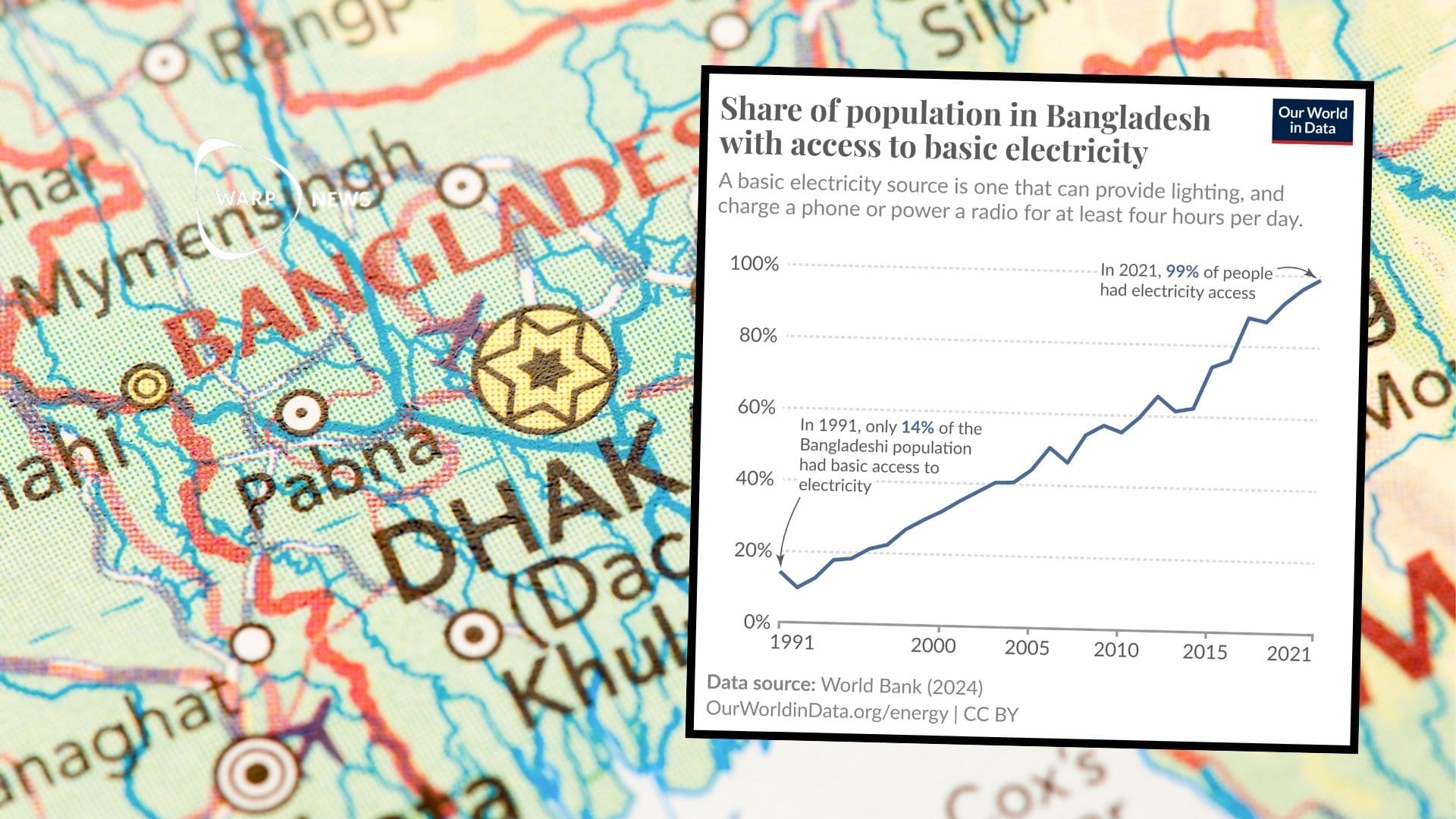
💡 Optimist's Edge: This is how we'll get peace on Earth
A majority thinks world peace is not possible, but it is. A world with only democracies will be a world at peace, with wars only in the history books.
Share this story!
📉 What people think
A majority don't think world peace is achievable. In our survey, 55 percent do not think world peace is possible and 45 percent think it is.

📈 Here are the facts
Over the years a number of researchers have studied wars between nations and have confirmed that democracies don't go to war against each other. This is called The Democratic Peace Theory.
- In A Study of War, Quincy Wright shows that in 116 wars between the years 1789 and 1942, 438 nations participated. Not once did democracies fight against each other.
- Sociologist Dean Babst examined the two world wars and found that 25 democracies participated. No fighting between them took place.
- Professor Michael Doyle at Columbia University studied all conflicts with more than one thousand killed between 1816 and 1980 and found not one example where democracies have fought with each other.
- Zeev Maoz and Nasrin Abdolali, two political scientists, examined 960 military conflicts. Not a single one took place between democracies.
- But perhaps the definition of democracy is too narrow? Professor of Political Science, Bruce Russetts, eased the concept and departed from the usual definition, but still could not find any example of democracies that fought with each other.
- Professor R.J. Rummel has found 353 warring couples between the years 1816 and 1991. 198 of these were non-democracy versus non-democracy, 155 between democracy and non-democracy, and zero between democracy and democracy.
The closest thing to an exemption is the American Civil War. Technically that was not between two countries, and one could question how democratic the South was. But it is probably the nearest exemption we've got.
- The road is bumpy, but the world is trending toward democracy: Behind dark headlines for democracy, there is also progress.

💡 Optimist's Edge
While a war between democracies is theoretically possible (it's not a law of nature) imagine a world with only democratic countries. No autocratic leaders, no dictators, no Putins. Every country and every international organization is run by democratically elected leaders and every nation respects human rights, such as free speech.
In a world like that, a war would be almost unthinkable. Like Norway suddenly invading Sweden, or the United States attacking Canada. That would not happen, unless one of those countries turned anti-democratic, with an autocratic populist leader.
After a couple of decades or so of world peace, the mindset of humanity would change. Wars would be something for the history books.
We would have no need for a military. In 2020 we spent about $2 trillion on the military. Money that could go to science, education, or many other things in a peaceful world.
Even in a world full of despots with billions of people not even allowed to think freely humanity has made fast progress. How many Elon Musks, Albert Einsteins, Marie Curies, and Malala Yousafzai are hidden under the thumb of the dictators, that then will be set free.
This will truly make a great future come sooner.
👇 How to get the Optimist’s Edge
- CANVAS grew out of the Serbian resistance movement that toppled Slobodan Milosevic and has trained over 16 000 democracy activists around the world. You can support their work, apply to become an intern, join the Summer Academy or take one of their university courses.
- Check out the Alliance of Democracies, an organization founded by former Danish Prime Minister, Anders Fogh Rasmussen.
- Vote for politicians and political parties that fully support and work for democracy at home and abroad.
- Run for office on a democratic platform.
- Believe world peace is possible! If we go around thinking it is impossible, it will be harder to achieve.
- Donate money to the AE Institution, founded by Dr. Gene Sharp, the man behind the many color revolutions. AEI trains activists in nonviolent resistance and revolutions.
- Read Dr. Gene Sharp's 198 methods of nonviolent action and use the methods that resonate with you. Can be used both in democratic and non-democratic countries.
- Enjoy the documentary How to start a revolution about Dr. Gene Sharp.

By becoming a premium supporter, you help in the creation and sharing of fact-based optimistic news all over the world.



